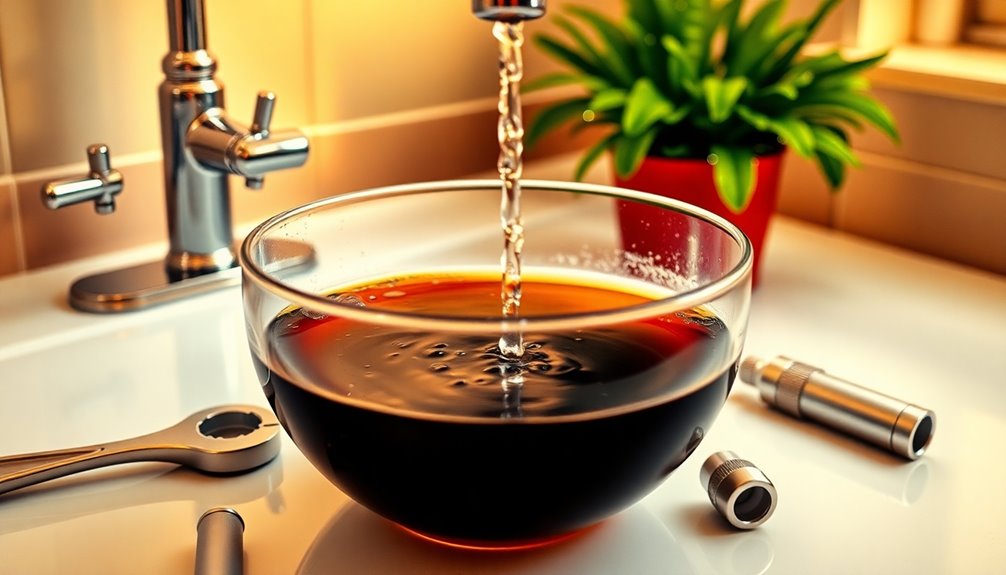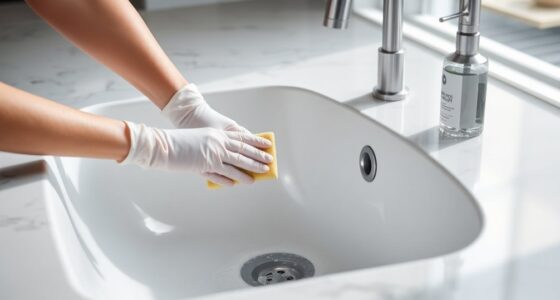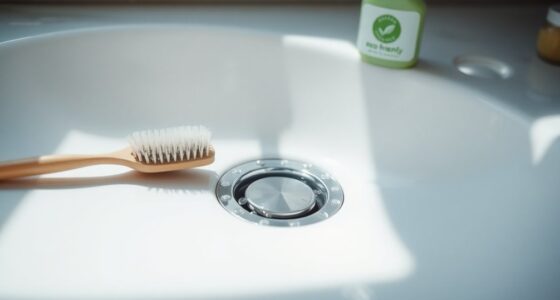If you've got black water coming out of your faucet, first check if it's just one faucet or the whole system. Unhook the supply hose and run it into a bucket. If you find black water, you might need to replace the supply line. If not, consider replacing the faucet. Regular maintenance and filtering can prevent future issues. Want to know more about fixing this problem? There are steps you can take to guarantee your water stays clean.
Key Takeaways
- Isolate the issue by checking if black water comes from one faucet or the entire system to identify the source of contamination.
- Unhook the supply hose from the faucet and place it in a bucket to test the water directly from the supply line.
- If no black water is found, consider replacing or repairing the faucet or its rubber components.
- If black water is present, replace the supply line to eliminate contamination from deteriorating materials.
- Consult a licensed plumber if issues persist or if you notice unusual odors or multiple fixtures affected.
Understanding the Causes of Black Water
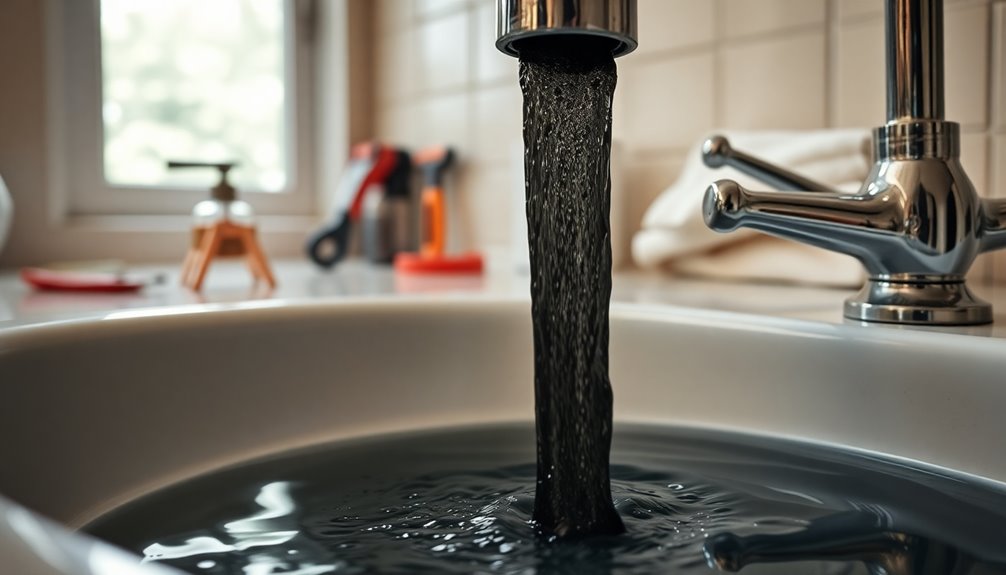
When you notice black water coming from your faucet, it's important to understand what might be causing the problem.
One common culprit is oxidation of mineral deposits like iron or manganese, which can accumulate in your plumbing system over time. If you have rusty pipes, particularly those made of steel or iron, rust flakes can mix with your water supply, leading to discoloration.
Additionally, mildew in your pipes or hot water heater may indicate potential health risks and necessitate inspection.
Sediment buildup from private wells or disturbances in your water supply can introduce particles that cause black water too.
Finally, degrading rubber components in your faucets can release black soot-like particles, especially when hot water is in use.
Initial Diagnosis and Troubleshooting Steps
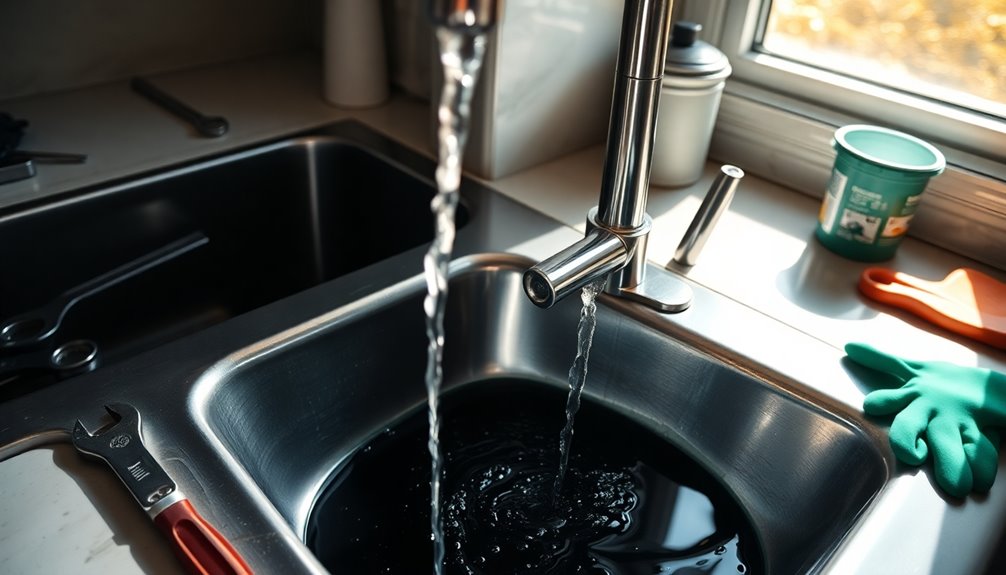
To effectively diagnose and troubleshoot black water issues, start by determining whether the problem is confined to a single faucet or affects the entire plumbing system. Follow these steps:
- Unhook the supply hose from the faucet but leave it connected to the shut-off valve.
- Place the hose into a bucket and open the supply valve. Check for black water.
- If no black water appears, consider replacing the faucet or its rubber components due to degradation.
- If black water is present, replace the supply line, as it may be contaminated with oxidized materials.
Regularly monitor water quality and schedule plumbing maintenance to prevent future occurrences of black water from faucets.
This proactive approach can save you time and hassle in the long run.
Recommended Actions for Immediate Resolution
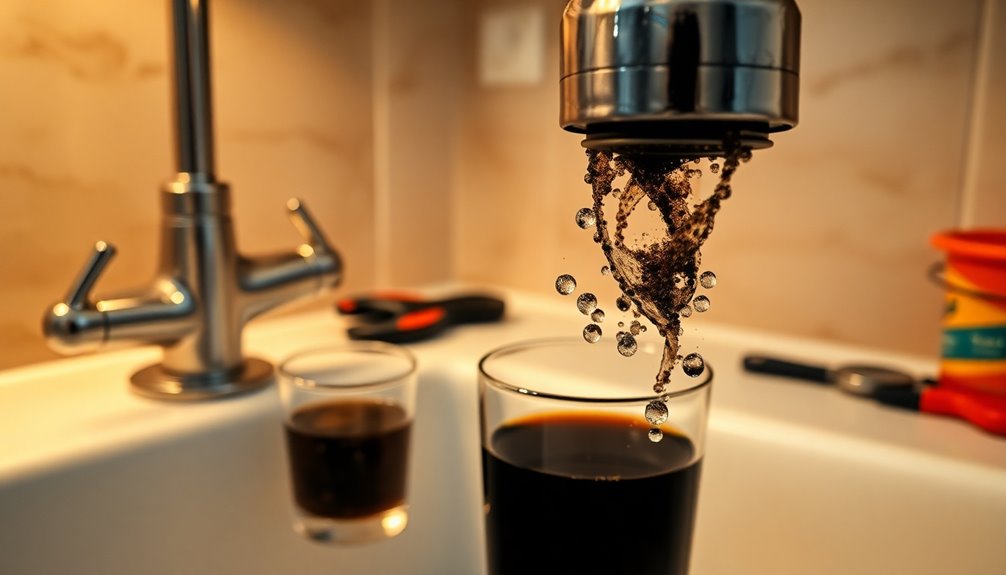
If you're facing black water issues from your faucet, taking immediate action is essential to restore your water quality.
Start by unhooking the supply hose from the faucet while keeping it connected to the shut-off valve. Place the hose in a bucket and open the supply valve to check for black water.
If none appears, the faucet may need a replacement or repair. However, if black water does come out, replace the supply line, as it may be deteriorating.
Regular inspection and maintenance of your plumbing fixtures can help prevent sediment buildup and component degradation.
If the problem persists, consult a licensed plumber for a thorough inspection to identify any underlying plumbing issues.
Preventive Measures to Avoid Future Issues
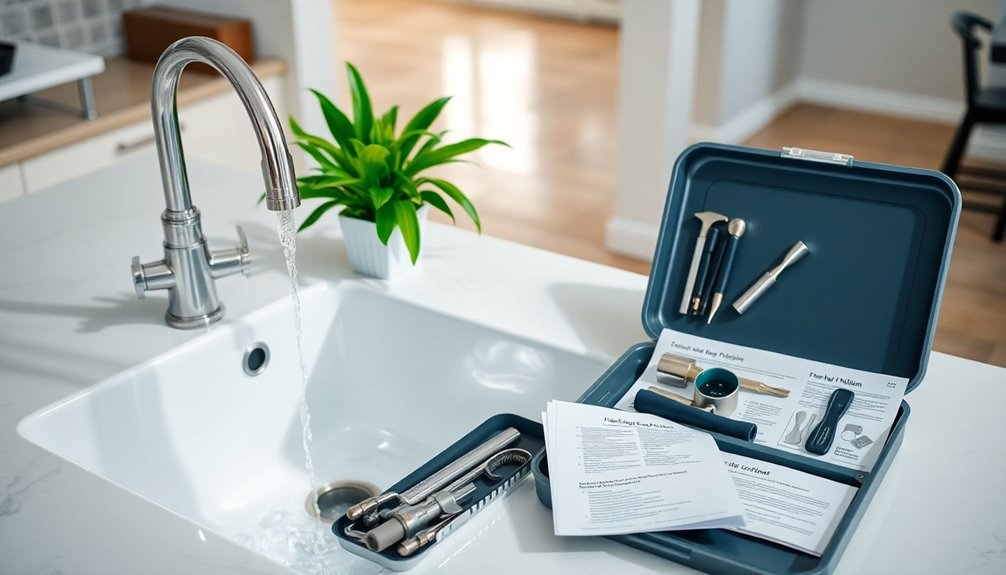
Taking proactive steps can greatly reduce the chances of encountering black water issues in the future. Here are some effective preventive measures you can implement:
- Inspect rubber components: Regularly check and replace rubber parts in faucets and supply lines to prevent degradation that can lead to black water.
- Schedule periodic maintenance: Keep an eye on your water heater for sediment buildup and replace the anode rod every 7-10 years to maintain water quality.
- Install a water filtration system: A high-quality system can reduce mineral buildup that contributes to discoloration in water.
- Flush your plumbing system: Periodically flushing helps dislodge accumulated sediments, ensuring clean water flow from all fixtures.
When to Seek Professional Help
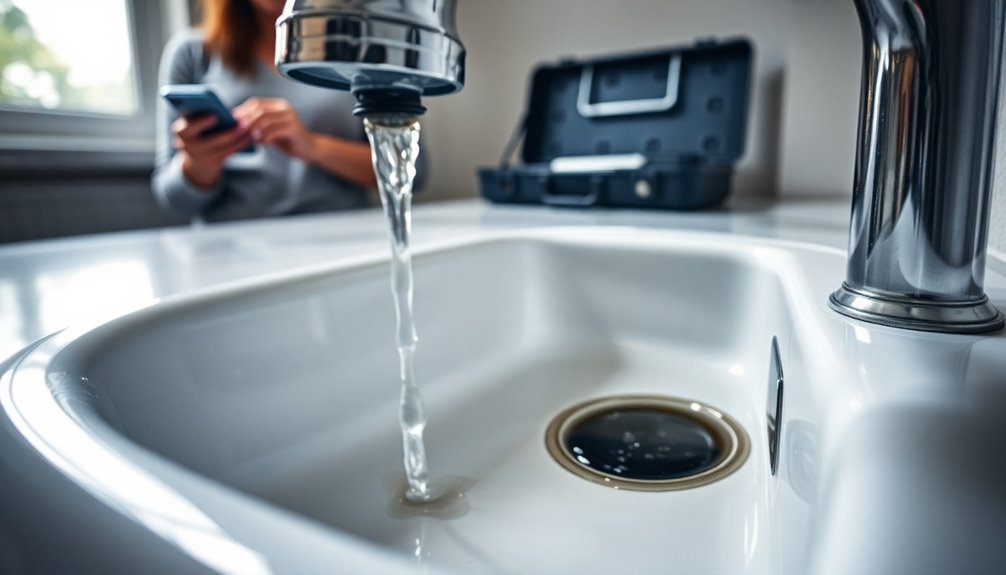
While some black water issues can be resolved through simple maintenance, knowing when to seek professional help is essential for your home's plumbing health.
If black water persists after flushing the system and replacing faulty components, it's time to call a professional plumber. Unusual odors accompanying the black water could indicate mold or mildew in your plumbing system, requiring expert attention.
If you notice water discoloration in multiple fixtures or throughout your home, this may signal a significant plumbing issue. Additionally, hard, misshapen particles in the black water may suggest corrosion in pipes that needs inspection.
Finally, if you experience water quality changes or health concerns related to water usage, don't hesitate to consult a licensed plumber for assistance.
Frequently Asked Questions
What Does It Mean When Black Water Comes Out of Your Faucet?
When you see black water coming out of your faucet, it usually means there's a problem with your plumbing.
It could be oxidized minerals, sediment buildup, or even corrosion in older pipes. Sometimes, rubber components in your fixtures might be breaking down, releasing dark particles.
If it's just one faucet, it's likely a localized issue.
Regular maintenance and inspections can help you avoid this unpleasant situation and keep your water clean.
How Do I Fix Black Stuff Coming Out of My Faucet?
To fix that black stuff coming out of your faucet, start by checking if it's just one faucet or multiple.
If it's isolated, detach the supply hose and run water into a bucket. If the water's clear, you might need to replace the faucet or its internal parts.
If black water shows up, consider replacing the supply line.
Regularly check and maintain your plumbing to prevent this issue in the future.
How Do I Fix Black Water Coming Out of My Sink?
To fix black water coming out of your sink, start by checking the faucet and supply hose for wear or damage.
Disconnect the supply hose and direct it into a bucket to see where the discoloration's coming from. If the water's clear, you may need to replace the faucet.
If it's still black, consider replacing the supply line to eliminate any contamination.
Regular maintenance can prevent future issues, so keep an eye on your plumbing.
How Do You Fix Black Hot Water?
When you find yourself in hot water with black discoloration, it's time to take action.
Start by draining your hot water heater to check for sediment buildup.
Don't forget to inspect the anode rod; if it's worn out after 7-10 years, replace it.
Also, check any rubber parts in your plumbing system.
Flushing the heater annually can help prevent issues, but if problems persist, call a professional for a thorough evaluation.
Conclusion
In the end, addressing black water isn't just about fixing a faucet; it's about restoring clarity to your home's lifeblood. By understanding the causes and taking swift action, you can guarantee that your water flows as pure as a mountain spring. Remember, prevention is your best ally against future troubles. But if the problem lingers like a stubborn shadow, don't hesitate to call in the professionals to illuminate the path to resolution.
